
Whos Counting? is an astonishing book, for it combines two things that arent often found together: analytical rigor and fun. You dont have to be a math nerd to appreciate the fluid, easy explanations of everyday innumerate reasoning, but I guarantee that this book will make you feel smarter. Whos Counting? is structured to enable the reader to dip in and out, biting each chocolate to see what one likes, but I encourage you to do what I did and just gorge yourself. It all tastes good.Lee McIntyre, author of How to Talk to a Science Denier
Math illiteracy breeds warped understandings of the world that ultimately jeopardize the progress of civilization. Math professor John Allen Paulos wrote Whos Counting? as an entertaining, relevant, and potent antidote to this societal blight.Neil deGrasse Tyson, astrophysicist, American Museum of Natural History
John Allen Paulos yet again defends logic and crusades against the problem of innumeracy with good humor and plain language. Using examples ranging from math puzzles to controversial cultural issues, this engaging book reminds us that citizens in a democracy must understand the facts and figures that swirl about them every day.Tom Nichols, author of The Death of Expertise
What better than a mathematician sharing the intrigue of math with us all and, at the same time, protecting us from the data manipulation and fake news that is threatening our democracy. Whos Counting? is a must-read for all who want to wear mathematical armor against the war on truth.Jo Boaler, Nominelli-Olivier Professor of Education (Mathematics) at Stanford University, co-founder of youcubed.org, and author of Limitless Mind
I love Pauloss writing. Within the ephemeral specifics of news, he finds the enduring logic of mathematics. Whos Counting? is a glimpse of a more numerate worldand oh how I wish we lived there!Ben Orlin, author of Math with Bad Drawings
We too often pigeonhole ourselves as number or narrative people. But Paulos breaks down that artificial division. With Whos Counting? skill at crafting numerate narratives is a superpower within our grasp.Philip E. Tetlock, author of Superforecasting
Whos Counting? would not only make a super present for the mathminded folks in your family (or for yourself), but also it provides a rich resource for teachers to dive into for great ideas to spice up their classes.Keith Devlin, emeritus mathematician and author, Stanford University

An imprint of Globe Pequot, the trade division of The Rowman & Littlefield Publishing Group, Inc.
4501 Forbes Blvd., Ste. 200
Lanham, MD 20706
www.rowman.com
Distributed by NATIONAL BOOK NETWORK
Copyright 2022 by John Allen Paulos
All rights reserved. No part of this book may be reproduced in any form or by any electronic or mechanical means, including information storage and retrieval systems, without written permission from the publisher, except by a reviewer who may quote passages in a review.
British Library Cataloguing in Publication Information Available
Library of Congress Cataloging-in-Publication Data
Names: Paulos, John Allen, author.
Title: Whos counting? : uniting numbers and narratives with stories from pop culture, sports, politics, and more / John Allen Paulos.
Description: Lanham, MD : Prometheus, an imprint of Globe Pequot, the trade division of The Rowman & Littlefield Publishing Group, Inc., [2022] | Summary: Whos Counting features selected columns from Pauloss well-known ABC News series of the same name collected here in book form for the first time, along with updates and brand-new original essays from the author, to examine how better understanding data improves our thinking and decisionmakingProvided by publisher.
Identifiers: LCCN 2022001235 (print) | LCCN 2022001236 (ebook) | ISBN 9781633888128 (paperback) | ISBN 9781633888135 (epub)
Subjects: LCSH: MathematicsPopular works.
Classification: LCC QA93 .P374 2022 (print) | LCC QA93 (ebook) | DDC 510dc23/eng20220521
LC record available at https://lccn.loc.gov/2022001235
LC ebook record available at https://lccn.loc.gov/2022001236
 The paper used in this publication meets the minimum requirements of American National Standard for Information SciencesPermanence of Paper for Printed Library Materials, ANSI/NISO Z39.48-1992.
The paper used in this publication meets the minimum requirements of American National Standard for Information SciencesPermanence of Paper for Printed Library Materials, ANSI/NISO Z39.48-1992.
Dedicated to those who can be both tough-minded and softhearted
CONTENTS
Guide
MORE THAN 30 YEARS AGO, I WROTE A WELL-RECEIVED BOOK TITLED Innumeracy. It contained some basic mathematical ideas, a few pedagogical suggestions, a bit of irreverence, and a cataloging of the consequences of Americans quantitative ignorance, at least those of a considerable fraction of us. Since then, in part a result of the wide availability of countless apps, software, books, and media platforms, people have become a little more comfortable with numbers and statistics. And perhaps because of the very welcome focus on so-called STEM subjects (science, technology, engineering, and mathematics) in schools and in the general culture, more people are also familiar with at least some mathematics and hopefully have grown accustomed to the ubiquitous uses of the subject.
Yet, despite all this, one of Innumeracys primary leitmotifs still holds today: Too many of us are still innumerate, and this societal innumeracy remains a vastly underrated driver of bad policy and bad politics. Almost every major issue and many minor ones facing this country are made more difficult by believing that (or at least acting as if) the numbers, probabilities, and relative magnitudes relevant to them dont really matter. Unfortunately, the problem involves not only the formal properties of these figures but also an understanding of what they mean or, more frequently, dont mean and how they should be interpreted.
For example, if you add 2 cups of water to 2 cups of popcorn, you dont get 4 cups of soggy popcorn, even though 2 plus 2 is unassailably equal to 4. Perhaps an absurd example, but it does point to a kind of extra-mathematical contextual understanding that is necessary but very often lacking in the application of mathematics to many topical issues. Why is it, to cite a less artificial recent example, that in highly vaccinated states, almost half of those hospitalized have been fully vaccinated? This seemingly odd fact is no more difficult to explain than is the following: All the students in a certain region took a difficult exam. Almost half of those who failed the exam studied hard for it. This doesnt mean studying hard for it was useless, merely that a huge majority of those taking the exam studied hard for it.
When we use mathematics to describe the social world, were always faced with a number of questions. What are we trying to measure or count, and how do we decide whom to include, exclude, or qualify? For example, is an unemployed person who takes turns staying with different siblings really homeless? And what degree of importance, certainty, or relevance should we ascribe to relationships between quantities, say, the relationship between COVID-19 and poverty or between Facebook and conspiracy theories? In addition to being fun, as I hope the examples included herein illustrate, precisely stated mathematical definitions and conditions can sometimes help reveal the implicit assumptions underlying such questions.
Next page

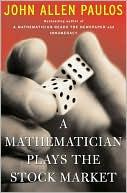
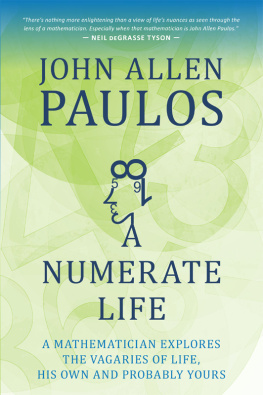
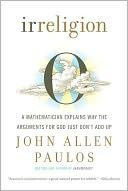
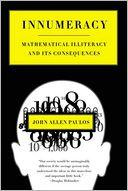
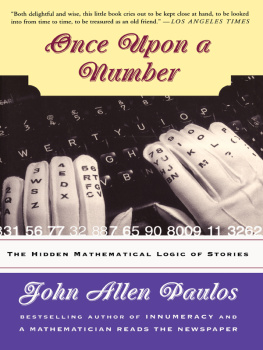
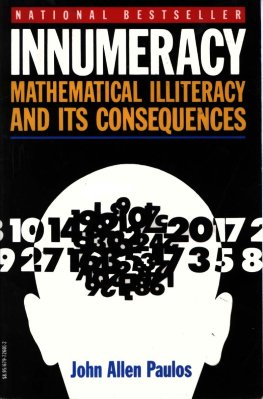
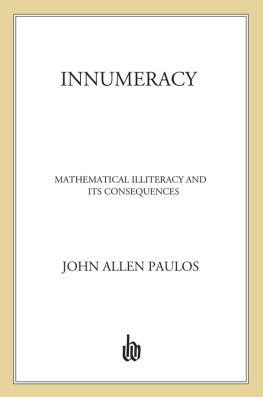
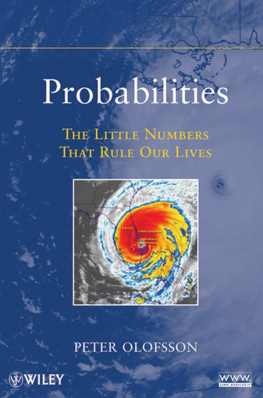
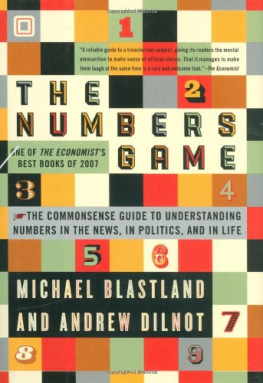


 The paper used in this publication meets the minimum requirements of American National Standard for Information SciencesPermanence of Paper for Printed Library Materials, ANSI/NISO Z39.48-1992.
The paper used in this publication meets the minimum requirements of American National Standard for Information SciencesPermanence of Paper for Printed Library Materials, ANSI/NISO Z39.48-1992.